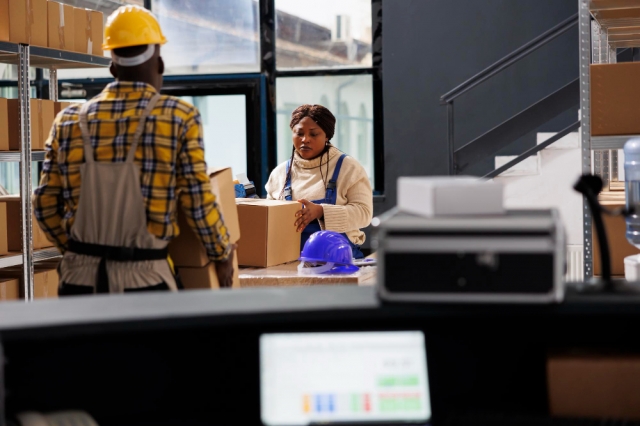Packaging automation solutions refer to the use of machinery and software to automate the packaging process in various industries. These solutions are crucial for modern businesses as they streamline operations, reduce manual labor, and ensure consistent product packaging. As industries continue to evolve, the demand for efficient and reliable packaging systems has never been higher, making automation a key component in maintaining competitiveness and meeting market demands.
Types of Packaging Automation Solutions
Packaging automation encompasses a wide range of technologies designed to improve the efficiency and effectiveness of the packaging process. The main categories include:
- Machinery: This includes various types of equipment such as filling machines, capping machines, labeling machines, and cartoning machines. These machines can handle tasks ranging from filling containers with products to applying labels and sealing packages.
- Software: Packaging automation software helps in managing and controlling the machinery. This includes systems for process control, inventory management, and real-time monitoring. Software solutions enable seamless integration of different components of the packaging line, enhancing overall efficiency.
Benefits of Implementing Packaging Automation
Adopting packaging automation solutions offers numerous benefits, including:
- Increased Efficiency: Automated systems operate faster and more accurately than manual processes, resulting in higher production rates and reduced downtime.
- Cost Savings: By reducing labor costs and minimizing waste, automation leads to significant cost savings. Additionally, automated systems often have lower long-term operational costs compared to manual setups.
- Improved Product Consistency: Automation ensures that each package is consistently filled, sealed, and labeled, reducing the likelihood of errors and enhancing product quality.
- Enhanced Safety: Automated systems can handle hazardous materials and repetitive tasks, reducing the risk of workplace injuries and improving overall safety.
Industries That Can Benefit from Packaging Automation
Packaging automation is versatile and can benefit a variety of industries, including:
- Food and Beverage: Automation ensures high hygiene standards and efficiency in packaging products such as beverages, snacks, and frozen foods.
- Pharmaceuticals: In the pharmaceutical industry, automation helps maintain precise dosing and secure packaging of medications, adhering to stringent regulatory requirements.
- Consumer Goods: For consumer goods, automation streamlines the packaging of products ranging from personal care items to household goods, enhancing production rates and consistency.
Case Studies: Success Stories in Packaging Automation
Here are a few examples of companies that have successfully adopted packaging automation:
- Company A: A leading food manufacturer implemented automated filling and capping systems, resulting in a 30% increase in production efficiency and a 25% reduction in labor costs.
- Company B: A pharmaceutical company integrated advanced labeling and packaging software, improving compliance with regulatory standards and reducing packaging errors by 40%.
- Company C: A consumer goods company adopted a fully automated packaging line, which led to a 20% decrease in production time and enhanced product consistency across multiple product lines.
Tips for Choosing the Right Packaging Automation Solution
When selecting a packaging automation solution, consider the following factors:
- Scalability: Choose a solution that can grow with your business and adapt to future production needs.
- Ease of Integration: Ensure that the automation system can be seamlessly integrated with your existing processes and equipment.
- Return on Investment (ROI): Evaluate the potential ROI by considering factors such as cost savings, efficiency gains, and long-term benefits.
Conclusion
As industries continue to embrace technological advancements, packaging automation stands out as a crucial component in achieving operational excellence. With its ability to enhance efficiency, reduce costs, and improve product consistency, automation offers significant advantages for businesses across various sectors. Looking ahead, trends such as AI-driven automation and smart packaging solutions are set to revolutionize the industry even further. Businesses are encouraged to explore these options to stay competitive and meet the evolving demands of the market.






